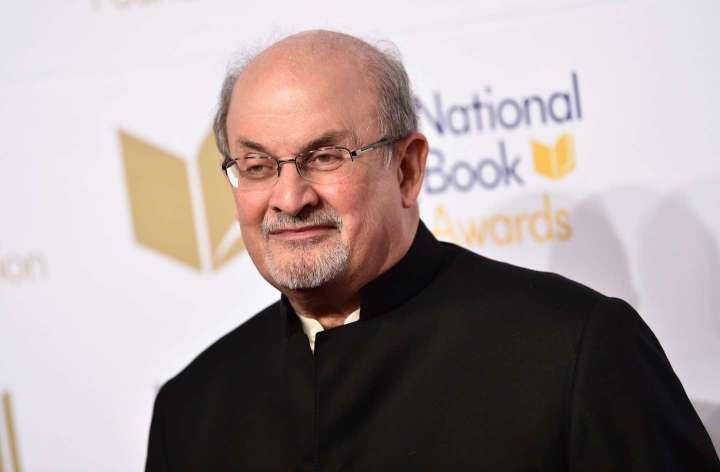Thankfully, novelist Salman Rushdie is expected to survive a shocking Aug. 12 knife attack, according to his literary agent. Mr. Rushdie, 75, was preparing to address Upstate New York’s Chautauqua Institution when, police said, Hadi Matar, a 24-year-old from Fairview, N.J., rushed the stage and repeatedly stabbed the author, an Indian-born U.S. citizen. This savage assault on a leading figure in the global struggle against illiberalism should inject new urgency into the defense of free expression — and sharpen focus on the Iranian government, which has long meant him harm.
The Salman Rushdie attack should sharpen focus on Iran’s misdeeds

Though Mr. Rushdie made his reputation in 1981 with “Midnight’s Children,” a novel of India’s transition from British rule to independence, it was his 1988 book, “The Satanic Verses,” that made him a target of censorship. Some Muslims regarded the novel’s references to the prophet Muhammad and the Quran as offensive — even blasphemous. It was burned or banned in several countries. On Feb. 14, 1989, the then-supreme leader of Iran, Ayatollah Ruhollah Khomeini, called upon all Muslims to kill Mr. Rushdie; for years thereafter, the writer lived in virtual hiding. Recently, however, he had felt safe pursuing a more public, relaxed existence — mistakenly, it now seems.
Law enforcement officers have charged Mr. Matar, the U.S.-born son of immigrants from Lebanon, with attempted murder but not suggested a motive. It is no great stretch to suppose that he was acting on the Iranian-inspired proscription against Mr. Rushdie, about which authorities in Tehran had given some conflicting signals over the years but never officially lifted. Less than a week before the attack, the official Iranian news website called the decree “an unforgettable verdict for Muslims around the world.” Afterward, a government spokesman said, “We do not consider that anyone deserves blame and accusations except him and his supporters.” Secretary of State Antony Blinken appropriately labeled Tehran’s attitude “despicable.”
If that hypothesis proves out, then this was an attack not only on Mr. Rushdie but also on freedom of speech, a fundamental human right that can be limited only according to law, and only so much — never by religious decree, much less assassination. Ayatollah Khomeini’s initial threat against Mr. Rushdie galvanized writers and artists in defense of that right; what happened at Chautauqua shows that movement was — and continues to be — necessary.
The attack might be part of a wider pattern of Iranian-organized or -inspired terrorism on U.S. soil. The FBI recently broke up an assassination-for-hire plot aimed at former national security adviser John Bolton. In 2021, U.S. officials foiled a kidnapping plot against Masih Alinejad, a dissident Iranian journalist living in New York. This month, police arrested a man with a loaded automatic weapon near her house. Mark T. Esper and Mike Pompeo — the Trump administration’s secretaries of defense and state, respectively — are under full-time protection because of Iranian threats against their lives. Mr. Bolton, Mr. Esper and Mr. Pompeo all advocated for the Trump administration’s “maximum pressure” campaign against Iran; the plots against them and others might be Iran’s revenge for the 2020 U.S. drone strike that killed Qasem Soleimani, commander of the Quds Force of the Iranian Revolutionary Guard Corps.
Meanwhile, Iran is weighing a “final offer” from the European Union that would revive a deal with the United States to abandon its nuclear weapons development. It can’t work without building trust; instead, the Islamic republic seems intent on building tension.






